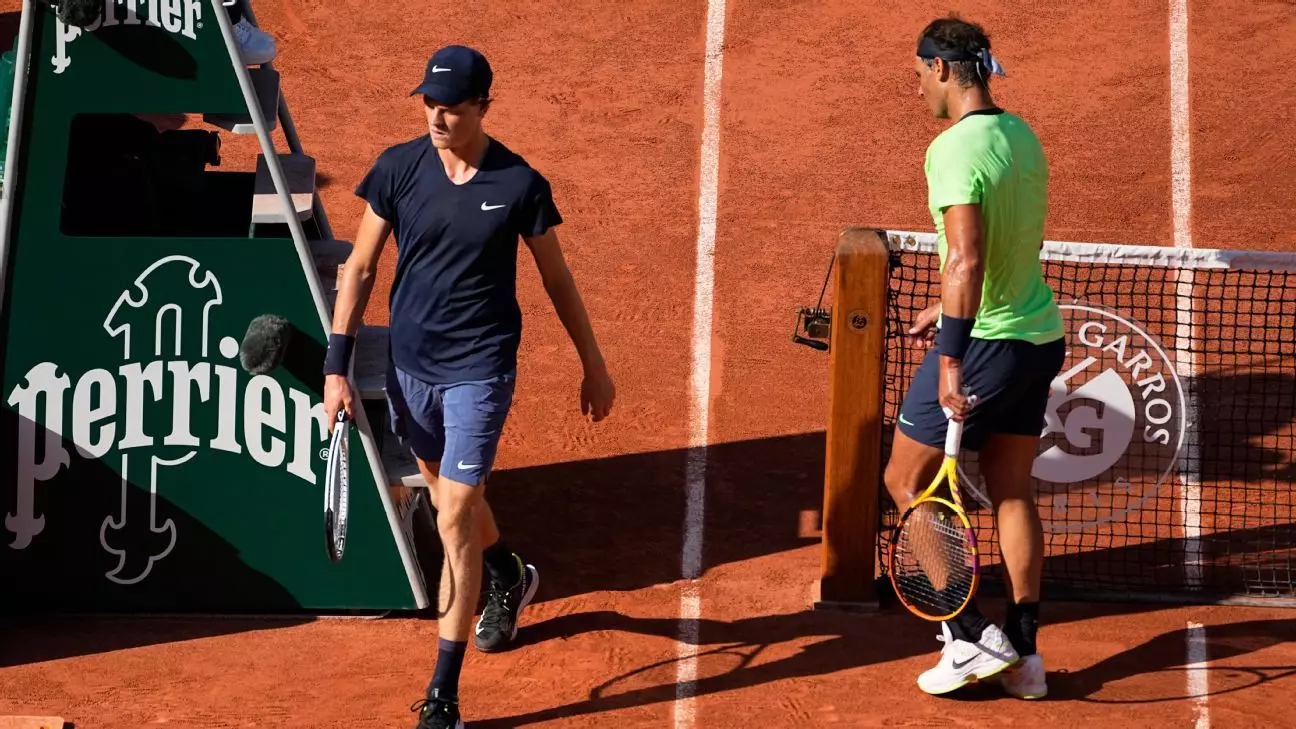Rafael Nadal recently defended Jannik Sinner after the world No. 1 tested positive for a banned substance but avoided punishment. Nadal vouched for Sinner’s character, stating that the Italian would never have considered doping and that he was not given special treatment just because he is the top-ranked player. This situation arose when Sinner tested positive for the steroid clostebol, a substance that can enhance muscle mass. However, he was ultimately cleared by a tribunal after it was revealed that his physio inadvertently applied a spray containing the banned substance to a cut on his hand before treating Sinner. This incident sparked controversy, with some players questioning the double standards in the handling of doping cases within tennis.
Nadal emphasized the importance of trusting antidoping organizations in making fair and just decisions. Despite the skepticism surrounding Sinner’s case, Nadal expressed his faith in the bodies responsible for evaluating such matters. He stated, “I believe in the bodies that have to make decisions and that really make them based on what they believe is right.” The International Tennis Integrity Agency (ITIA) played a crucial role in clearing Sinner of any wrongdoing. Established in 2021 by the governing bodies of the sport, the ITIA serves as an independent entity tasked with upholding the integrity and fairness of tennis competitions.
Sinner’s case highlighted the complexity and scrutiny involved in doping allegations. Despite facing two positive drug tests in March, Sinner maintained his innocence, arguing that the amount of clostebol detected in his system was minuscule. While some players, including Novak Djokovic and Nick Kyrgios, called for stricter protocols and consequences for doping violations, Nadal stood by the ITIA’s decision to clear Sinner of any sanctions. He stated, “I’m totally confident that if he has not been sanctioned it is because those who have had to judge this case have seen very clearly that there were no sanctions to be imposed.”
Nadal’s defense of Sinner raised the question of personal beliefs versus professional judgment. While individuals may hold differing opinions on how doping cases should be handled, Nadal urged for trust in the established protocols and organizations responsible for maintaining fairness in tennis. He acknowledged that while others may have varying perspectives on the matter, his unwavering belief in the integrity of the decision-making process guided his support for Sinner.
The case of Jannik Sinner serves as a reminder of the complexities and challenges associated with antidoping measures in professional tennis. Trust in the authorities overseeing such matters is crucial in upholding the integrity of the sport and ensuring that all players are treated fairly and equitably. Nadal’s defense of Sinner sheds light on the importance of maintaining faith in the processes that govern the handling of doping allegations, ultimately contributing to a more transparent and accountable environment within the tennis community.


Leave a Reply